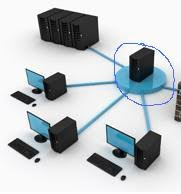First, a primer for the uninitiated on "net neutrality."
Net (as in network) neutrality is the idea that all traffic on the Internet
should be treated equally and — more to the point — should come at
the same price. Right now, for instance, you don't have to pay more
to watch a YouTube video than you do to check your email, even
though the YouTube video eats up more bandwidth and, in theory,
costs your ISP more for you to watch.
Websites and most consumers love the idea of net neutrality.
ISPs, on the other hand, are not fans. In fact, the net neutrality
movement arose as a response to major ISPs' plans to attempt to
charge websites and service providers more for "better" service on
their networks. Fail to pay up and that YouTube video might take
twice as long to download ... or it may not download at all.
ISPs call this the cost of doing business and a necessary reality in an
era where bandwidth isn't growing but the amount of data being
pushed through the available pipes is.
Net neutrality proponents call this extortion.
No matter who is right, things were looking up for net neutrality fans
after the FCC and the Obama administration came out with specific
and strongly worded recommendations and plans that they would
push for net neutrality as the Obama broadband program (100Mbps
to everyone!) moved forward.
But the showdown had already begun prior to the Obama era, way back in 2007, when Comcast, the
country's largest cable company, began throttling BitTorrent downloads, effectively putting a speed limit on
how fast they could go. The FCC put the kibosh on the practice, and ISPs, led by the mammoth Comcast,
sued. Then the FCC announced even more sweeping rules that it planned to enact in the future.
This week, a major legal ruling was handed down in the Comcast case, and the tide has now turned in favor
of the ISPs. The District of Columbia Court of Appeals said that the FCC had overstepped its authority in
mandating net neutrality and that ISPs should be free to manage traffic however they see fit, noting that
under current law, the FCC does not have "untrammeled freedom" to regulate broadband services. (In other
words, Congress would have to specifically grant such powers.) The ruling was unanimous among the three
judges on the panel.
Now net neutrality fans find themselves facing a serious uphill climb. Not only does the ruling open up the
way — for now — for ISPs to ask websites and service providers for money; it might also allow them to
restrict certain services from running on their networks entirely. Comcast, for example, may not want you to
watch Hulu on its service, since then you'd have less of a reason to pay $60 a month for cable TV. It may
also be able to ban VOIP services like Skype, so you'll pony up another $20 for wired telephone service. The
dominoes are already lining up.
What happens now? The FCC has more tricks up its sleeve. As the MSNBC story above notes, broadband service could be reclassified to fall under the other heavily regulated telecommunications services that the
FCC oversees, but that would likely result in additional legal wrangling and longer delays for the broadband
plan to go into effect, a so-called nuclear option that would turn the world of broadband into a bit of a
bureaucratic nightmare.
If it doesn't take this route, the FCC will instead have to ask Congress for the power to implement net
neutrality rules as it sees fit, but that's a political game in a time when Washington seems awfully low on
political capital. Don't rule out an appeal to the Supreme Court, either
Wednesday, November 24, 2010
Subscribe to:
Post Comments (Atom)

No comments:
Post a Comment